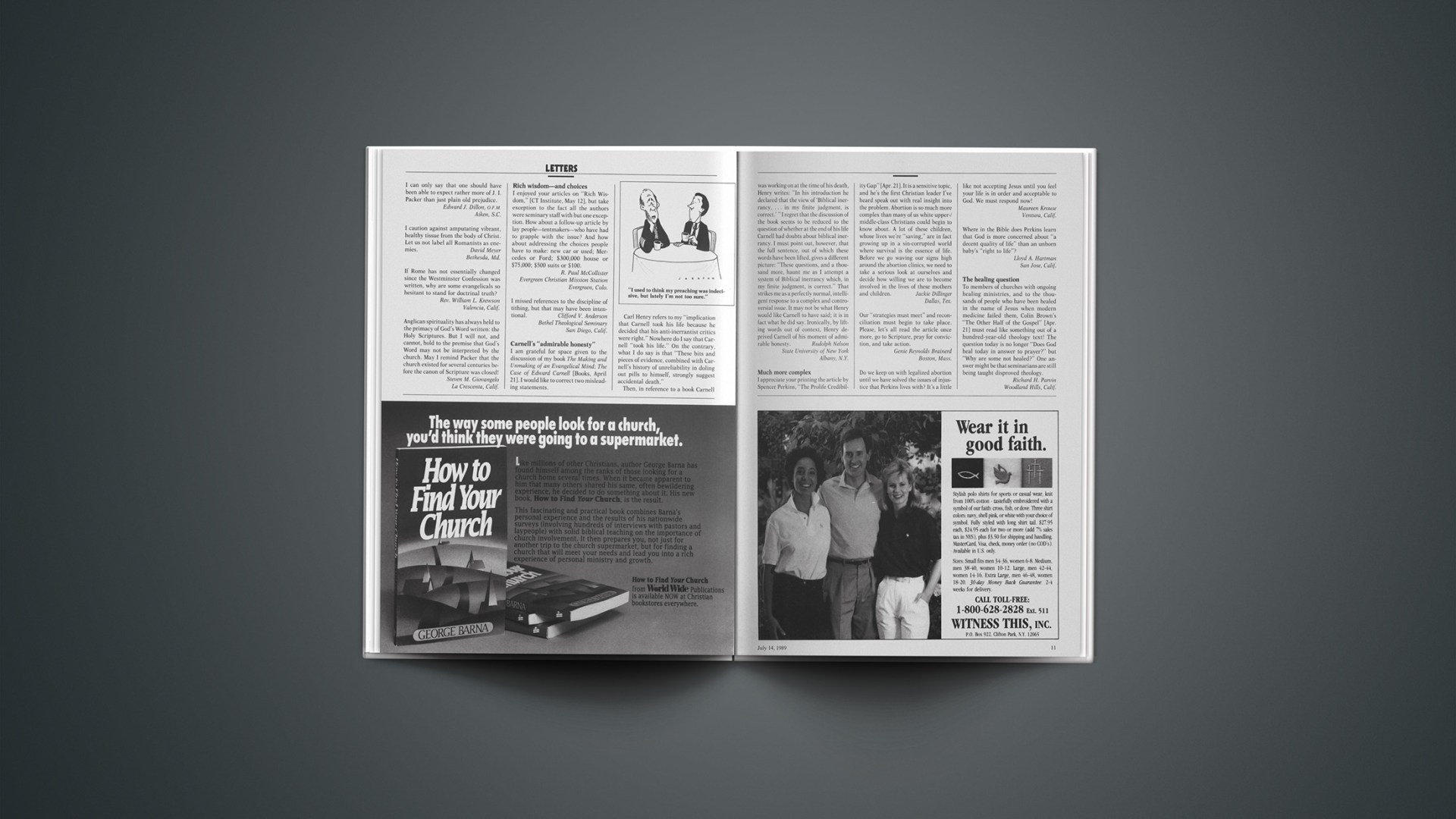Around the end of the academic year college professors start singing what one of my colleagues calls the “May blues.” Teaching, grading, committee work, research, and writing—activities we’ve been juggling like Indian clubs since September—begin to take their toll on us, and we, like students, can’t wait till exams are graded and the last dormitory room emptied.
Most Christian college teachers believe they are fulfilling God’s call by embracing the diverse demands of Christian academic life. Indeed, most of us can’t imagine ourselves doing anything else—or at least not for very long. Still, as the preacher in Ecclesiastes wrote, “For everything there is a season, and a time for every matter under heaven.” I myself have had an unusually busy year, and, God willing, by the time you read this column I will be in the midst of a two-week sojourn in Canada. I am going back to summer camp.
The idea occurred to me when I found out the parachurch organization that runs the camp relies in part on volunteer labor to staff it. They need adults in the kitchen, office, and maintenance departments. As I filled out my son’s camp application in the midst of a March snowstorm, the idea of two weeks of physical labor—and of letting somebody else tell me what to do rather than juggling my own commitments—sounded appealing. Now, as I get ready to drive north, it still does.
Why? “A change is as good as a rest,” goes one proverb, and “One man’s meat is another’s poison,” goes another. If my main work over the past ten months had been physical rather than intellectual, I would probably look forward to spending a few weeks as a student in a summer school classroom. Instead, I am looking forward to being as far away from the college library as possible and spending some evenings listening to loons on a Muskoka lake.
But there’s more. I am convinced that Christian camping is a major vehicle for the spiritual development of children, and I want to support it. Although my own childhood experiences were not at specifically Christian camps, there was something about being in a wilderness situation, about testing my own physical limits and learning to respect the integrity of the environment, that pointed me toward the God who was behind it all. All of this might just have resulted in a vaguely pantheistic faith on my part. But by the grace of God, it did more: it helped set the stage for my conversion. Natural theology is not enough to bring us to salvation, but for many it is an important link in the chain. As Paul wrote, “Ever since the creation of the world [God’s] invisible nature, namely, his eternal power and deity, has been clearly perceived in the things that have been made” (Rom. 1:20).
Christian camping, of course, does more than this. It shows children the link between God’s general revelation in nature and his special revelation in the Bible. It emphasizes cooperation over competition, introducing children to the essential idea of the church as a body of believers with varieties of gifts. At my son’s camp there are “special needs” campers—children with Down’s syndrome, cerebral palsy, autism, and diabetes—who are integrated with the main body of campers to the fullest extent possible, reminding them that healthy bodies and minds are gifts from God. Christian camping also provides children with same-sex role models of achievement and personal faith at just the age when they are beginning to need adults other than their parents with whom to identify.
For all these reasons I am looking forward to going back to camp. I will not, however, completely escape from my teacherly role. Having accepted my application to be a volunteer, the camp directors promptly assigned me the job of dining room host. That includes overseeing the set-up and clean-up of meals, serving tea and coffee to the staff table, and generally keeping the flow of camper traffic from degenerating into chaos. I suspect the camp administrators concluded that a teacher, being used to giving orders in the classroom, would be of more use in the dining room than in the vehicle maintenance shop. And in my case they are correct!










